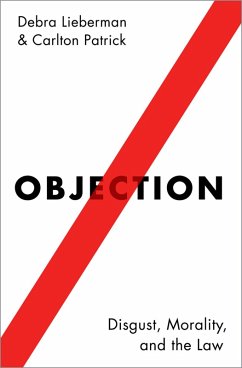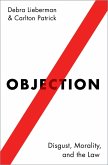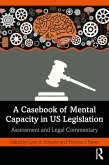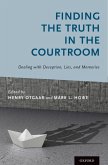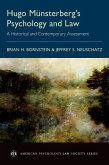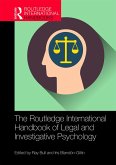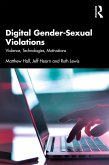Why do we consider incest wrong, even when it occurs between consenting adults unable to have children? Why are words that gross us out more likely to be deemed "obscene" and denied the protection of the First Amendment? In a world where a gruesome photograph can decisively influence a jury and homosexual behavior is still condemned by some as "unnatural," it is worth asking: is our legal system really governed by the power of reason? Or do we allow a primitive human emotion, disgust, to guide us in our lawmaking? In
Objection, psychologists Debra Lieberman and Carlton Patrick examine disgust and its impact on the legal system to show why the things that we find stomach-turning so often become the things that we render unlawful. Shedding light on the evolutionary and psychological origins of disgust, the authors reveal how ancient human intuitions about what is safe to eat or touch, or who would make an advantageous mate, have become co-opted by moral systems designed to condemn behavior and identify groups of people ripe for marginalization. Over time these moral stances have made their way into legal codes, and disgust has thereby served as the impetus for laws against behaviors almost universally held to be "disgusting" (corpse desecration, bestiality) - and as the implicit justification for more controversial prohibitions (homosexuality, use of pornography). Written with a critical eye on current events, Lieberman and Patrick build a case for a more reasoned approach to lawmaking in a system that often confuses "gross" with "wrong."
Dieser Download kann aus rechtlichen Gründen nur mit Rechnungsadresse in A, B, BG, CY, CZ, D, DK, EW, E, FIN, F, GR, HR, H, IRL, I, LT, L, LR, M, NL, PL, P, R, S, SLO, SK ausgeliefert werden.

